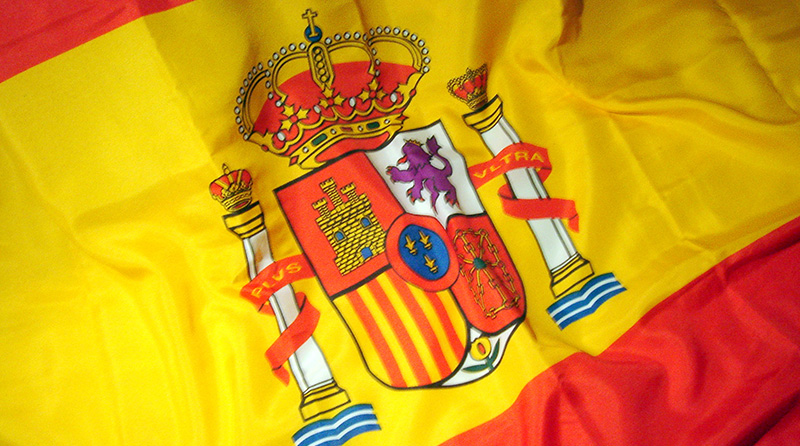
Written by Petar Iskenderov; published at FSKSRB.ru, translated by Mario Andrijasevic exclusively for SouthFront
Results of parliamentary elections in Spain which were held on December 20th have a symbolic significance for the whole Europe. For the first time in recent history of the continent is was clearly expressed the crisis of the two-party model which has traditionally been a guarantee for the elite to remain in power who change the places but strictly follow the established rules of the game in terms of the problems of European integrations, politics and relations with Russia and mutual relations with the United States.
The first signs of an end to this model were shown with the recent parliamentary elections in Greece. Greek precedent in Brussels and Washington was quickly justified with the extraordinary socio-economic situation in the country and the traditional mentality of the Greeks.
However, in Spanish case everything is more serious. This country has always acted as a strong supporter and advocate of European integration and has regularly delivered cadres of politicians in senior management positions in NATO, EU and other institutions. That is why the results of the election are even more significant, because they, unlike Greece, were extraordinary and were not caused by an extraordinary socio-economic or political situation.
What conclusions can be drawn from all of this? Firstly, we can talk about the equal degree of social disapproval in both major “systemic” political forces in the country, regardless of which of them is in power. The ruling PP (People´s party) lost 64 seats, while the opposition Spanish Socialist Workers’ Party was not able to exploit the situation in order to mobilize the protest electorate and ensure its own victory.
Moreover, the Socialists for their part were also losers, losing 20 seats compared to the previous elections, showing the worst result in the history of the party since November 1997. A similar situation with the failure of both “systemic” parties took place in Greece when leftist coalition SYRIZA came to power.
With that the Spanish voters showed “yellow card” to “PPs” and “socialists”, who throughout their common policy represented a “post-Franco” period in Spain. Taken as a whole it never happened before in Spain that none of the parties would have so little parliamentary mandates that they would not be able to form a government themselves.
Secondly, forecasts of those who thought that the Spaniards will in the last minute give up the benefits of trust to “new leftists” – Eurosceptics from the Podemos movement for fear of their radicalism and euroscepticism, did not justify. Prior to the vote the national social services GESOP gave the Podemos 21.5%.
As a result of all of this we have a situation that the movement won by 20.7% of the vote – the error was less than 1%. Especially characterized was Podemos´s victory in the Basque and Catalonia – which even more intensifies the situation around the separatist moods in these Spanish provinces.
“Today a new Spain is born which will put a lock on the existing political system and will seek a new agreement on the territorial division” – in such indicative category Podemos’s boss Pablo Iglesias described the results of the elections.
Thirdly- “plan B” in Spain has failed. Plan B which washastilyprepared by theruling eliteof Madridand Brusselsin the event offailure ofthe People’s Partyand theSpanish Socialist Workers’ Party, which provided forthe accumulationof protestvotesaroundthe newly formedcentristparty”Citizens” (Ciudadanos).
Unlike Podemos, this party is already tightly integrated into the political expanse of the European Union as a member of the pro-European Liberal ALDE Group in the European Parliament, and during the pre-election debate is not remembered for any new approach to the question of Spain in European and international structures and institutions, but the proposal of the authorities to introduce a system in the country which is based on the American model.
By the way – about America. The development of the current presidential campaign in the United States in an analog manner is the evidence of the crisis of the national two-party system. The leading candidate Donald Trump according to an analysis of sociological research, only formally belongs to the wing of Republicans. For other potential candidates-Republicans he is even more unfrozen politician than his political opponent Hillary Clinton from the Democrats.
Even though Ciudadanos´s goal was to finish third and to become a “golden chip” for saving the two-party system, they did not succeed. Centrists did not succeed in any province, and their final score (13.9%) only allows possible coalition if they would form it together with their principled opponents of Podemos – and at the same time share it with the People’s Democratic Party (28.7%) or the Socialists (22%).
And this pushes Spain from this side into a state of political spin to a completely real prospect of a new vote and to further strengthen the position of separatists and Euro-skeptics. “The parliament which was now created is the result of these elections and it will be the most fragmented in the history of democracy”, Ana Alonso Montez, known Spanish analyst stated in an interview for the American edition of El Nuevo Herald.
And here is to whom the election result in Spain seems obviously beneficial – for the Basque and Catalan separatists. First of all, they were given the opportunity to declare a crisis and even the collapse of the political model in the country and the necessity of developing new principles of construction of Spain to expand its own powers. In addition, for each coalition government which will be created under these conditions will be weak, unable to realistically oppose national movements of Basque and Catalans. This is why the European Union will in 2016 apparently have new problems on the horizon – especially as Podemos´s supporters in other European countries (among them is also the German movement PEGIDA) are also successfully collecting points.





